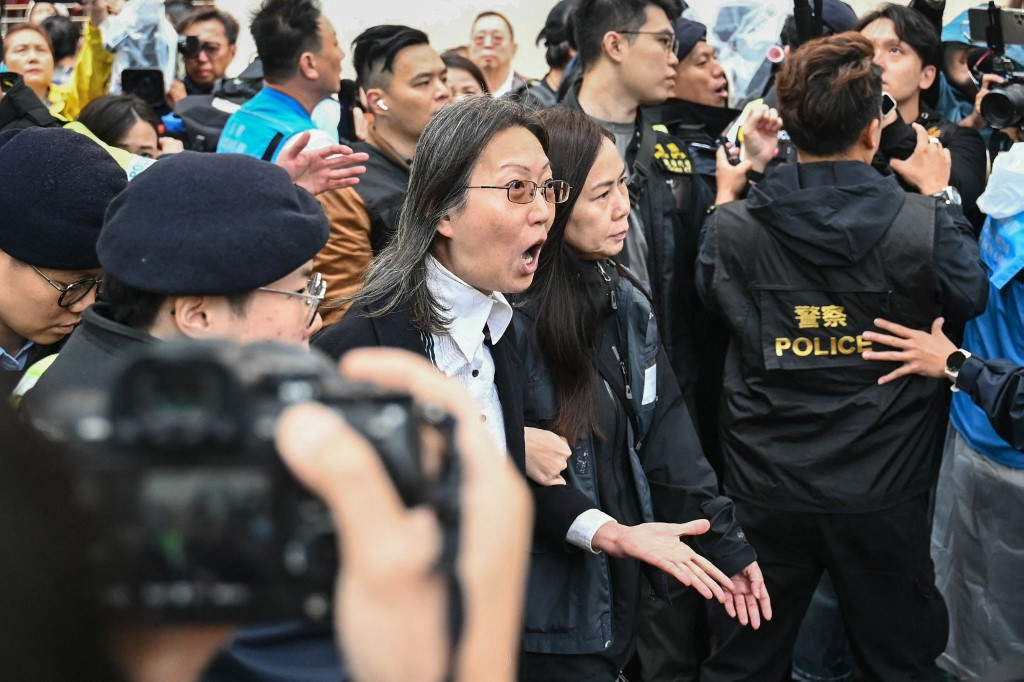
A Hong Kong court on Tuesday sentenced all 45 defendants in the city’s largest trial under its national security law, with the so-called “mastermind” Benny Tai receiving the harshest sentence of 10 years in prison.
The sentencing quickly drew international condemnation, with the United States, Australia, and human rights organizations criticizing the decision as further evidence of the erosion of political freedoms in Hong Kong since the implementation of the controversial national security law in 2020.
Tai’s 10-year sentence is the longest imposed under the law, which was enacted by Beijing to suppress dissent following the massive pro-democracy protests of 2019. The group of defendants, which included figures from across Hong Kong’s once-diverse political landscape, was charged with subversion for organizing an unofficial primary election in 2020. The aim was to secure a pro-democracy majority in the Legislative Council, which they hoped would allow them to push for political reforms, including universal suffrage.
On Tuesday, the 45 defendants were led into the courtroom and crowded into the dock. Some occasionally waved to supporters in the public gallery.
In addition to Tai, other key figures such as pro-democracy politicians Au Nok-hin, Andrew Chiu, Ben Chung, and Australian citizen Gordon Ng were sentenced to up to seven years and three months in prison for their roles as organizers. Australia’s government expressed its “grave concern” over the sentencing, emphasizing its continued support for Ng’s “best interests.”
The remaining 40 defendants received sentences ranging from four years and two months to seven years. Among the most notable, activist Owen Chow received a sentence of seven years and nine months, with the court noting that he had played a more active role in the plot than other defendants. “Long Hair” Leung Kwok-hung, co-founder of the League of Social Democrats (the last remaining opposition party in the city), was sentenced to six years and nine months.
Outside the courthouse, Leung’s wife, Chan Po-ying, leader of the League of Social Democrats, expressed a mix of resignation and defiance, saying the sentence was “within our expectations.” “It is what it is — no matter whether I laugh or I cry, so I choose to laugh a bit,” she said.
Leticia Wong, a former district councillor, described the sentencing as an effort to “encourage people to plead guilty and testify against their peers.” She noted that those who resisted were punished more harshly.
Western governments and human rights groups have decried the trial as a clear indication of Hong Kong’s slide toward authoritarianism. A U.S. consulate spokesperson condemned the sentences, asserting that the defendants were “aggressively prosecuted and jailed for peacefully participating in normal political activity.” Maya Wang from Human Rights Watch called the sentences “a stark reflection of how quickly Hong Kong’s civil liberties and judicial independence have eroded over the past four years.”
Anna Kwok, Executive Director of the Hong Kong Democracy Council, labeled the sentencing an “attack on the essence of Hong Kong,” which she said had long stood for “freedom, democracy, and the right to political expression.”
In defense of the security law, both the Chinese and Hong Kong governments have maintained that it was necessary to restore order following the 2019 protests, and they have warned foreign nations against interfering in Hong Kong’s internal matters.
Originally, 47 individuals were charged after their arrests in January 2021, making this trial the largest involving national security cases. Of the 47, 31 pleaded guilty, and 16 went to trial, with 14 convicted and two acquitted in May 2023.
The case stems from a 2020 strategy to hold a primary election with the aim of selecting pro-democracy candidates who could challenge the government’s policies. The goal was to achieve a majority in the Legislative Council and use that power to push for political reforms, including universal suffrage. The government argued that such a strategy would have led to a “constitutional crisis,” threatening to derail Hong Kong’s political system.
The trial’s outcome marks another chapter in Hong Kong’s ongoing political crisis, with critics fearing that the national security law is being used to stifle opposition and tighten Beijing’s control over the territory.
